FIBA Intercontinental Cup - Team in Focus: Flamengo
Flamengo, the famous Brazilian basketball team established a century ago and winners of the FIBA Intercontinental Cup in 2014, will host the competition at Carioca 1 Arena
RIO DE JANEIRO (Brazil) - In the buildup to the FIBA Intercontinental Cup taking place in Rio from February 15-17, we profile each of the four participating teams.
Here, we take a closer look at Flamengo, the famous Brazilian basketball team established a century ago - and winner of the FIBA Intercontinental Cup in 2014 - which will host the four-team competition at Carioca 1 Arena, site of the Olympic Basketball Tournament at the Rio 2016 Games.
Players to watch out for
Anderson Varejao
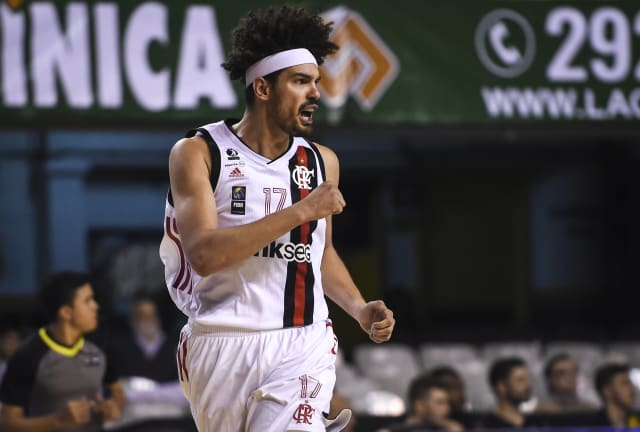
At age 36, Anderson Varejao is a Brazilian icon and now on the books of Flamengo. Having passed through Barcelona after São Paulo's Franco, Varejao, played for 13 consecutive years in the NBA with the Cleveland Cavaliers (2004-16), and the Golden State Warriors (2016-17). He took part in three NBA Finals, two with the Cleveland Cavaliers and one with the Golden State Warriors, and participated in all the FIBA World Cups with Brazil from 2002 to 2014, and at the 2012 Olympics in London.
Marquinho Vieira
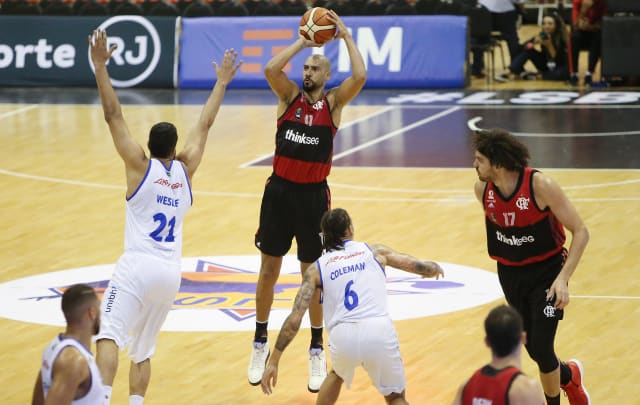
Next to Anderson Varejao, Marquinhos, at the age of 34, continues to be a huge presence in Brazilian basketball. He and Olivinvha are links to the great team of 2014 that won the FIBA Intercontinental Cup. He scoring 11 and 9 points, respectively, in the games against Maccabi Tel Aviv. Among the many famous games in the Brazil national team career of Marquinhos was a Preliminary showdown with the USA at the FIBA Basketball World Cup 2010 in Istanbul when he led Brazil to a near upset with 16 points. The Americans won that thriller, 70-68.
What they said about the FIBA Intercontinental Cup
"We're very happy to be a part of another Intercontinental Cup and to have the opportunity to play against great teams in the world. This format has everything to succeed and grow in the coming years. Flamengo is very proud and honored to play the championship, even more playing in Rio. Let's prepare ourselves in the best way and try to win this title with all our strength, because, without doubt, it is the most important championship that we will play this season." - Flamengo head coach Gustavo De Conti
Team's All-Time Greats
Oscar Schmidt
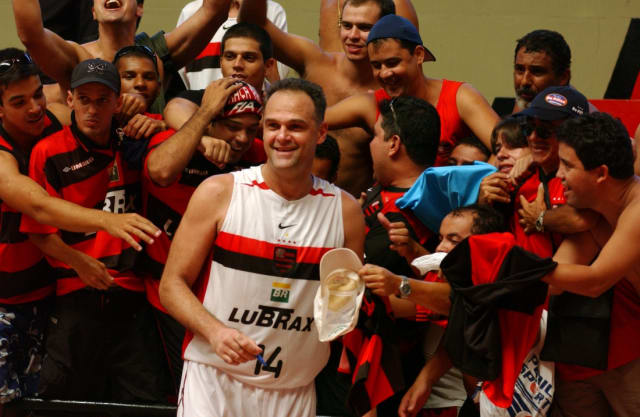
The first among the first, the most important of the great ones to have ever worn the Flamengo jersey, is the magnificent Oscar Schmidt, the Holy Hand of Brazil, one of the top players and scorers in world basketball history. Oscar is member of both the FIBA Hall of Fame and the Naismith Memorial Basketball Hall of Fame. He played for Flamengo from 1999 to 2003, winning the state championship in that last year, at the age of 45. From 1995, when he returned to Brazil after a 13-year career in Europe, until 2003, when he retired, he was the player with the most points in the league. Flamengo retired his jersey in 2003.
Kanela
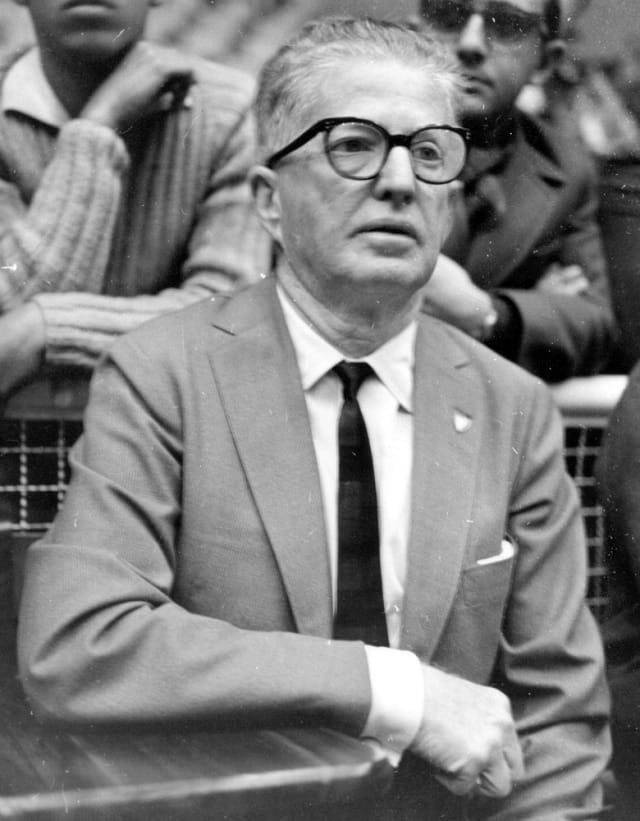
While the reins of the basketball team have been in the hands of Gustavo De Conti since last year, there is one figure who will always be at the top of Flamengo, the man they called "Kanela". Although he began his career as a football coach of neighbors and rivals Botafogo, Kanela (Togo Renan Soares) turned his focus to basketball and sat on the bench of Flamengo for 22 consecutive years (1948-70). He led Flamengo to 14 Rio de Janeiro State Championships, including 10 in a row, between 1951 and 1960. With Flamengo, he also won the South American Club Championship in 1953.
During that time, he also worked for the Brazilian national team, steering the "Cariocas" to some of their greatest moments. He led them to the top of the podium at the FIBA Basketball World Cup in 1959 and 1963. He also guided them to Olympic bronze at the 1960 Rome Games and to third at the 1967 World Cup. Among his many other achievements at the helm of Brazil, Kanela guided Brazil to five FIBA South American Championship titles (1958, 1960, 1961, 1963 and 1971). In 2007, 15 years after his death at the age of 86, Kanela was enshrined into the FIBA Hall of Fame.
Team history
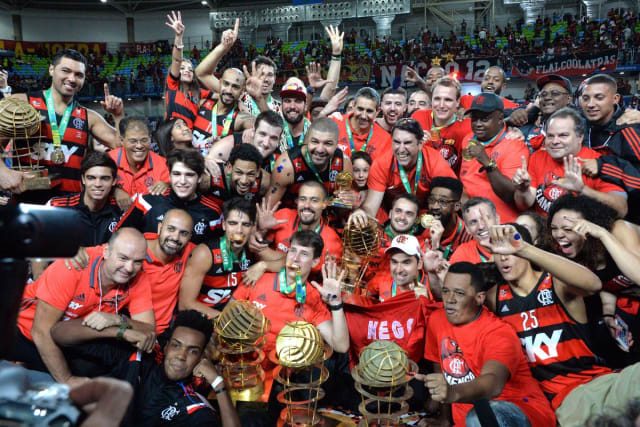
Flamengo has a long and storied history. The team has won a jaw-dropping 44 Rio de Janeiro State Championships, the first in 1933 and then 10 straight from 1951 to 1960. The club whose winning tradition has earned it the nickname "Pride of the Nation" claimed another 12 State Championships from 2005 to 2016.
Flamengo, which is an area of Rio de Janeiro located in the heart of the city, was the first to be inhabited and developed in culture, economic and social terms. It's a place with a history of pioneers where people crave being first at everything they do.
The residents of the Flamengo neighborhood are fortunate because when they look up, there's a breathtaking view of the legendary Corcovado, and the impressive Sugarloaf. A cable car connects the two mountains.
Looking up, in fact, is where all of Brazil usually finds Flamengo because its teams are among the most successful in the land. The Flamengo sports club was born in 1895.
Its basketball team was set up 24 years later and, in its very first year, it captured the city championship of Rio. A lot of success has followed with the State Championships but also six National Championships that have been garnered since 2008, the most recent coming in 2016.
2014 - a memorable year
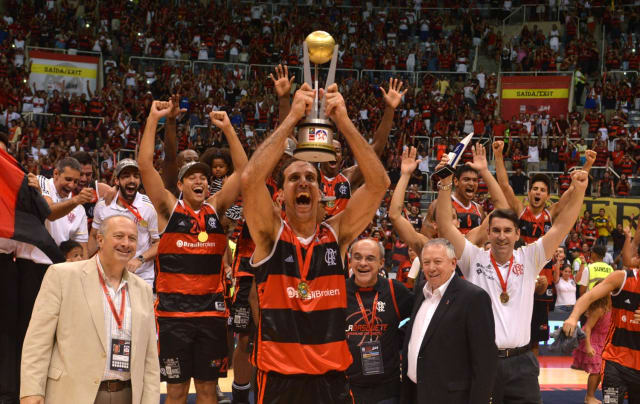
Flamengo filled its basketball crown with the most precious diamonds in its history back in 2014, a year that saw the club win the State Championship, Brazilian Championship, DIRECTV Liga de las Americas title and the FIBA Intercontinental Cup. It's no surprise that 2014 is very dear to the hearts of Flamengo fans.
In that year's FIBA Intercontinental Cup - a double-game format hosted at the HSBC Arena - Flamengo participated as FIBA Americas League winner against the European champions, Maccabi Tel Aviv. In the first leg, the Brazilians lost to the Israeli outfit, 69-66, but two days later, led by Olivinha's 13 points, Flamengo dominated their opponents and prevailed, 90-77.
Five years later, Flamengo are here again.
FIBA